
By Jessica Holmes
Good morning, good afternoon, good evening, in whatever time and place you happen to be. Ready for some more Doctor Who? I certainly am.
So, a super speedy recap before we get into things: the Doctor went and got himself and his companions stuck on an alien planet, and then everyone got captured and almost died of radiation poisoning. They escaped, barely, but then realised they couldn't leave because they'd left part of the TARDIS behind. So now they're going to have to go back to their captors. Well done, Doctor.
Oh, and there are some very cross pepperpots who dabble in plumbing.
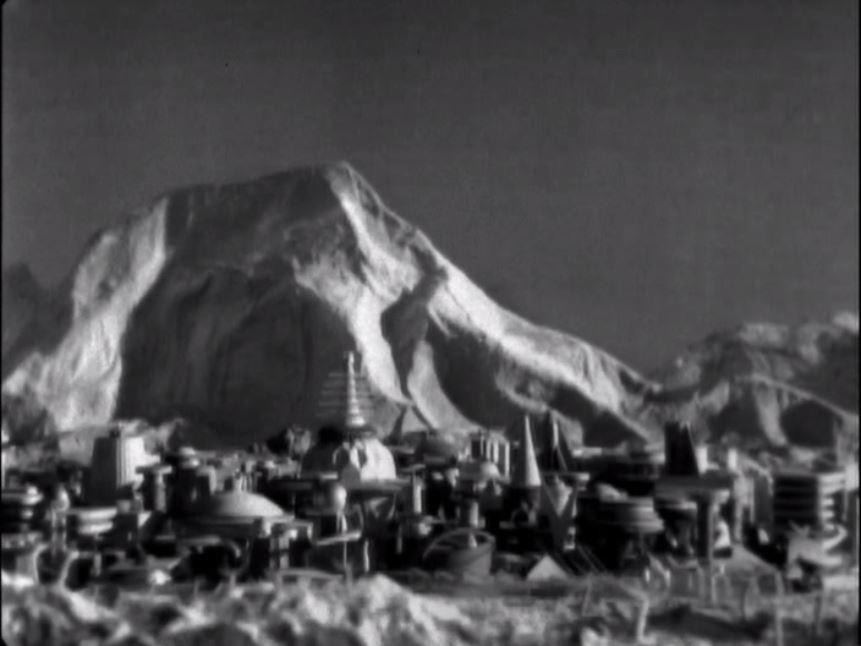
THE EXPEDITION
In this episode, the companions must convince the Thals to help them reclaim a vital part of the TARDIS.
However, the Thals are so deeply opposed to violence that they won't take any aggressive action against the Daleks. What's more, the companions themselves can't agree on whether it's right to enlist the Thals in a conflict that has nothing to do with them, even if it could buy them their lives. After some shenanigans and a cruel but effective trick from Ian, Alydon manages to rally a few Thals to assist Ian and Barbara in their expedition to recover the part.
There are two big moral questions in this serial, and this episode is where they’re thrust into the spotlight: when, if ever, is it right to fight? And is it right to enlist someone else to fight your battles?
Entering the episode, the Thals have a firm answer to the first question: never.
"We will not fight. There will be no more wars. Look at our planet. This was once a great world, full of ideas and art and invention. In one day it was destroyed. And you will never find one good reason why we should ever begin destroying everything again."
Alydon
The Doctor, however, isn't having any of it. The Thals are going to fight and he's going to lead them into battle. Won’t that be something, indeed.
This leads us right into the second question: is it right to enlist someone else to fight your battles? Even if your troubles have nothing to do with them?
The Doctor, for the record, couldn't care less if it's right or wrong. It's a matter of survival. If making the Thals fight will make them more likely to survive, then morality doesn’t come into the equation. Now, it shouldn’t surprise anyone that the Doctor would take this stance, but what about Barbara? Yes, of all people, Barbara takes his side. She never really struck me as a moral pragmatist before, but then again, it would surprise most people just how flexible morality can be when your life's on the line.
However, Ian thinks otherwise. Though eager earlier to get the Thals to fight, Ian has come to believe it would be wrong to force them to go against their nature, when this isn't even their battle. If the Thals are going to fight, it has to be for their own reasons.
How do you make a Thal fight? Threaten his loved ones, of course. When Ian threatens to take one of the Thals to the Daleks in exchange for the fluid link (one who is very special to Alydon, if you catch my meaning), it takes Alydon all of three seconds to send him flying.
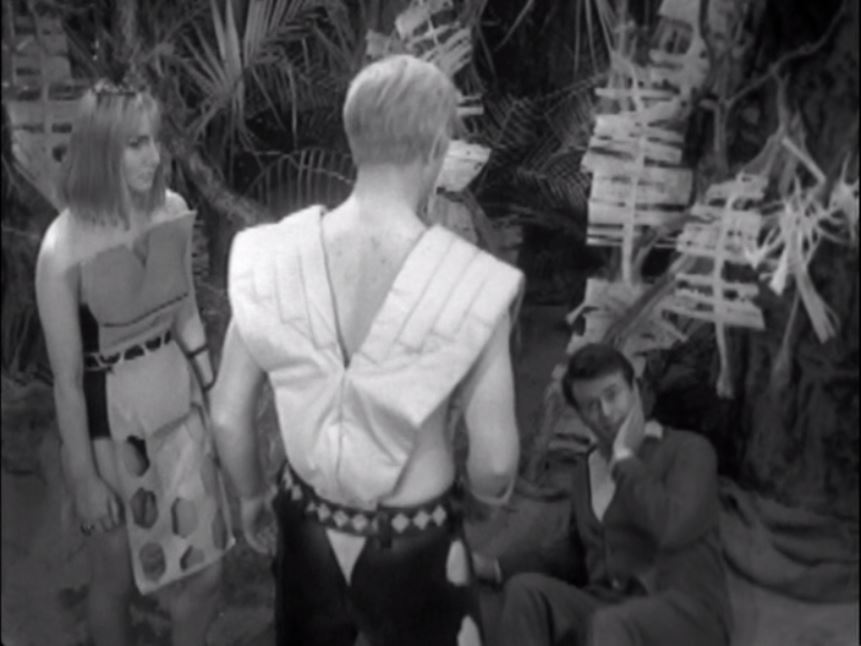
For a man who’s never fought anyone in his life, Alydon can throw a heck of a punch.
Now, consider this: while all this debate has been raging, the Daleks have synthesised the Thals' anti-radiation drug with unexpected results: the drug is toxic to them. Why? Because it stops them absorbing radiation. This leads the Daleks to realise they need a radioactive environment to survive. If they're ever going to leave the city, they'll have to flood the planet with radiation. The Thals don't know it yet, but they're living on borrowed time.
Alydon comes to an important realisation while wrestling with his guilt over punching Ian. There may well be a just cause for fighting: in defence of another. If they don't help the companions, knowing that only their help can save them, they might as well just kill them themselves. It’s an interesting notion, and one that I find myself agreeing with. After all, all that is necessary for evil to triumph is for good men to do nothing.
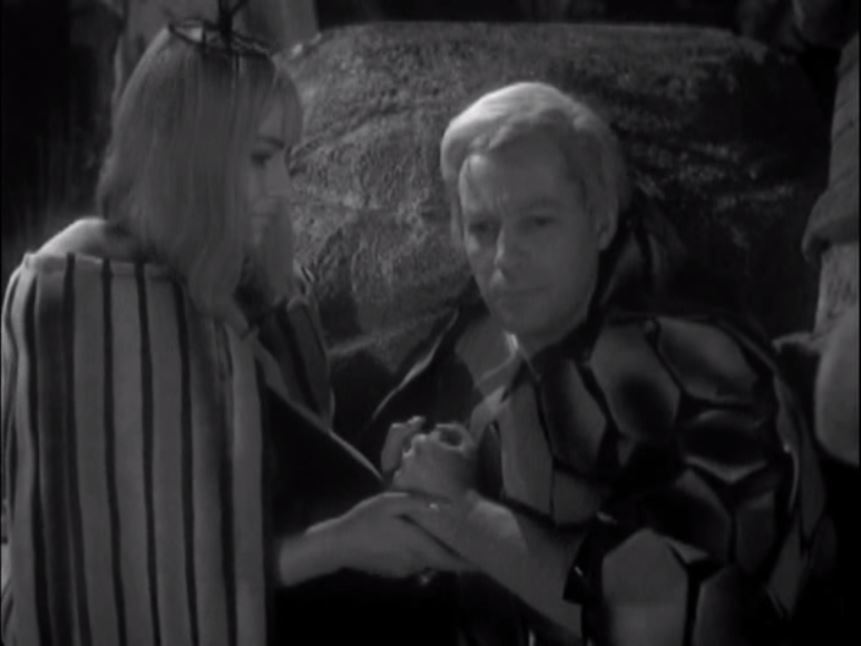
What's more, Alydon has himself come to the conclusion that the Daleks represent an ongoing threat to the Thals. They have all the food, and before long, the Thals are going to starve. The Thals are afraid, but that's okay. They're right to be afraid. But as Alydon puts it:
"There is no indignity in being afraid to die. But there is a terrible shame in being afraid to live."
In the end, a few Thals agree to go with Ian and Barbara, and they set out to infiltrate the city. However, it doesn't take long before they run into trouble.
This might be one of my favourite episodes of the serial. I really enjoyed the moral quandaries the characters found themselves in.
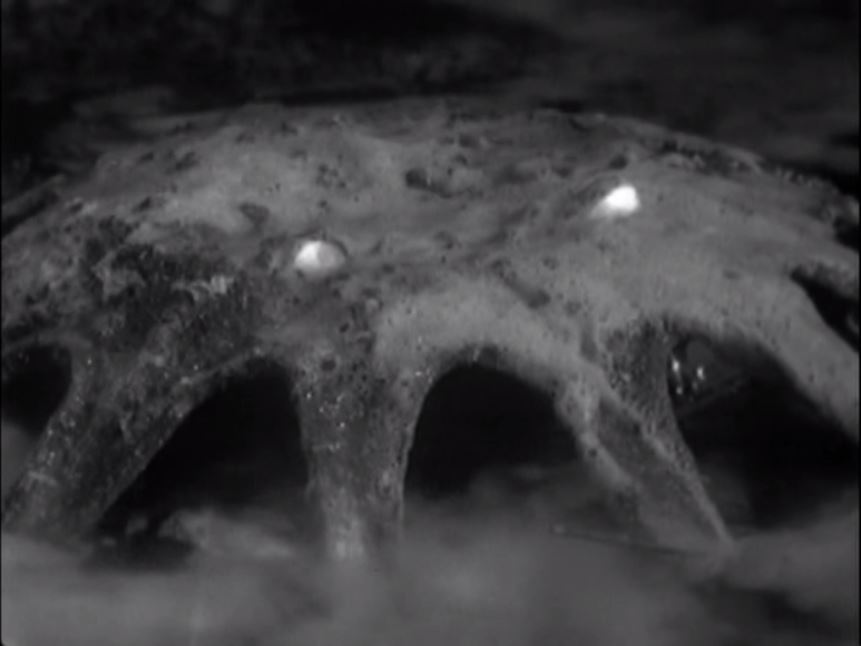
We have to have a bog monster in a bog, even if it doesn’t do anything. It’s the rules.
THE ORDEAL
This episode isn't as good as the ones sandwiching it. I'll say that before anything else. There's not really any of the moral philosophy, major character development (other than one rather nice Thal whose name I can't remember), or excitement of the other episodes, so I'll keep it brief.
In this episode, all of our players are getting into place for the final act. Ian and Barbara are leading an expedition of Thals to infiltrate the city from behind, and the Doctor and Susan are with the main group, plotting their own assault on the city. Meanwhile, the Daleks accelerate their plans to make the planet more suitable to their needs.
There are some rather nice, borderline flirty moments of banter between Barbara and one of the Thals travelling with her. It's a sweet little human thing that goes a long way towards endearing him to me. I just wonder how he ever learned of the Earth concept of 'ladies first'. Is that something that regularly comes up in conversation?
I also enjoyed the Doctor and Susan acting like a pair of gleeful schoolchildren as they sabotaged the Daleks' surveillance equipment—especially when the Doctor got so carried away with his own cleverness he forgot the most important part of any bit of mischief: run away afterwards.
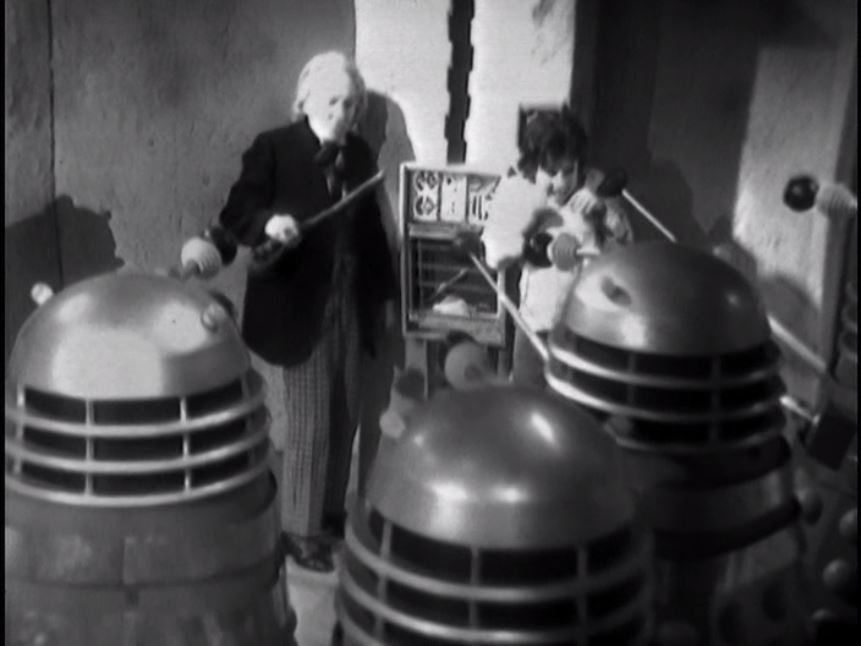
You have to wonder how he’s survived as long as he has, really.
Towards the end of the episode, though, there's a scene which is a bit frustrating to watch, as once again, we run up against the budget limitations. It's rather hard to even see what's going on, harder still to believe that our heroes are clinging to the walls of a perilous ravine. Even an establishing shot of a matte painting would have gone a long way towards building my suspension of disbelief.
THE RESCUE
Here we are, at the grand finale. There's a lot going on in this episode, so let’s take a deep breath, and away we go!
Ian and Barbara make it to the city of the Daleks, as Susan and the Doctor find themselves once again at the mercy of the plunger-brandishing fiends. The Daleks kindly explain their whole evil plan, because that’s what baddies do. I’m sure there’s a Handy Guide To Being Evil out there somewhere that every villain ever written has read. Explaining your entire plan is rule number two. The first rule is to never just kill the hero when you have him at your mercy. That wouldn’t be any fun, now, would it?
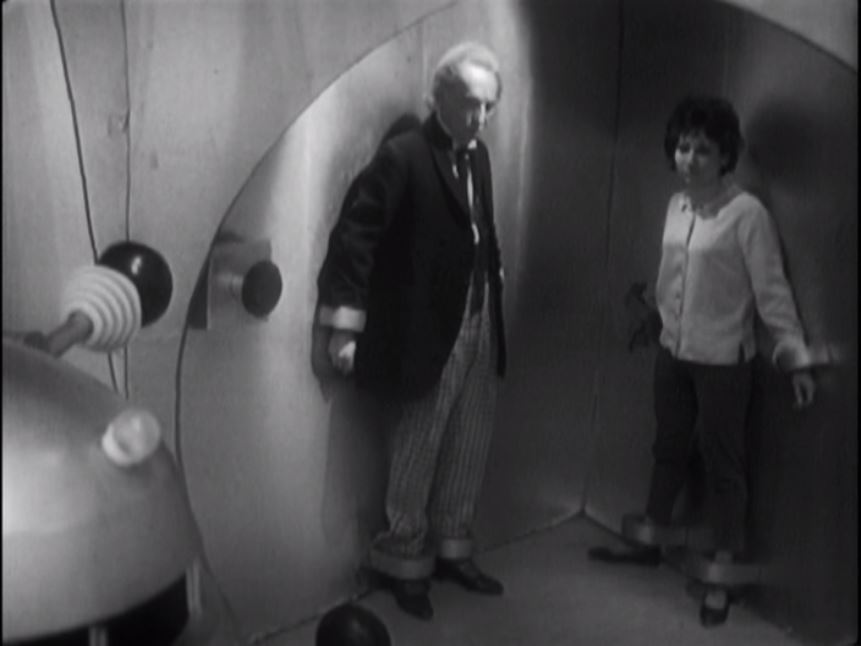
By deliberately overloading their nuclear reactors, The Daleks will be able to release enough radioactive material to irradiate the atmosphere and terraform the planet to their needs. Or should that be skaroform?
As Alydon rallies his men to assault the city, the Doctor pleads with the Daleks to see reason. When he finds no sense of morality in them to appeal to, he even tries bargaining, but to no avail. Time is running out for the Doctor, and for the planet, when Ian and Barbara's party meets up with Alydon's group, and together, they make their assault on the Dalek command.
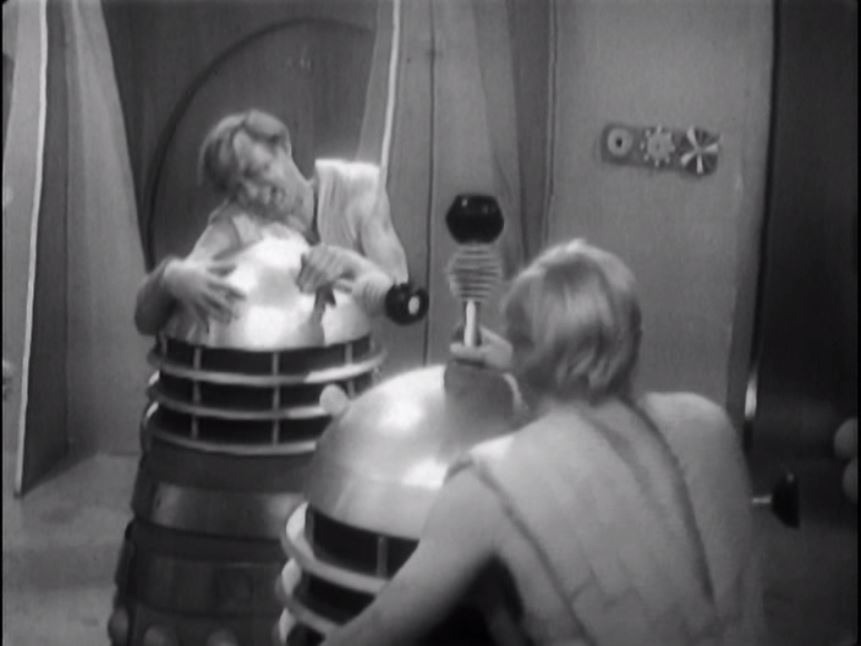
I can only really describe what happens as a… kerfuffle. Though the Daleks are deadly at a distance, in close quarters, they're no match for the strength and mobility of their attackers, who push them about as if they were shopping trolleys. It’s a bit funnier than I think was intended.
The Thals prevail, freeing the Doctor to put a stop to the Daleks' plan. However, the salvation of the Thals is achieved at the fatal expense of the Daleks. The reactors are fast draining of power entirely. When they're fully powered down, the Daleks will be starved for radiation. One Dalek, dying, begs for the Doctor to undo what he's done. But he can't. And even if he could, he wouldn't. The Dalek dies, and with it, it seems, the Dalek race itself.
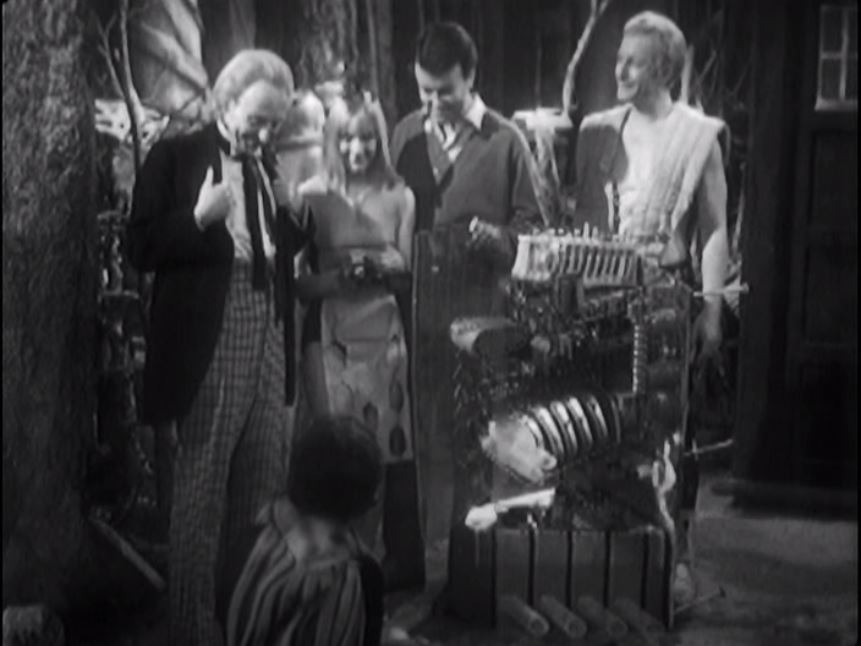
Susan even got a snazzy new cloak.
So much for just being a wanderer throughout the universe, Doctor. You just single-handedly eradicated a sapient species. Neither he, nor any of the other characters for that matter, seem to appreciate that fact, and the episode breezes on to the dénouement, where lessons are learned, goodbyes are said, and cliffhangers for the next serial are set up. Oh, and Barbara and her Thal friend share a very special farewell.
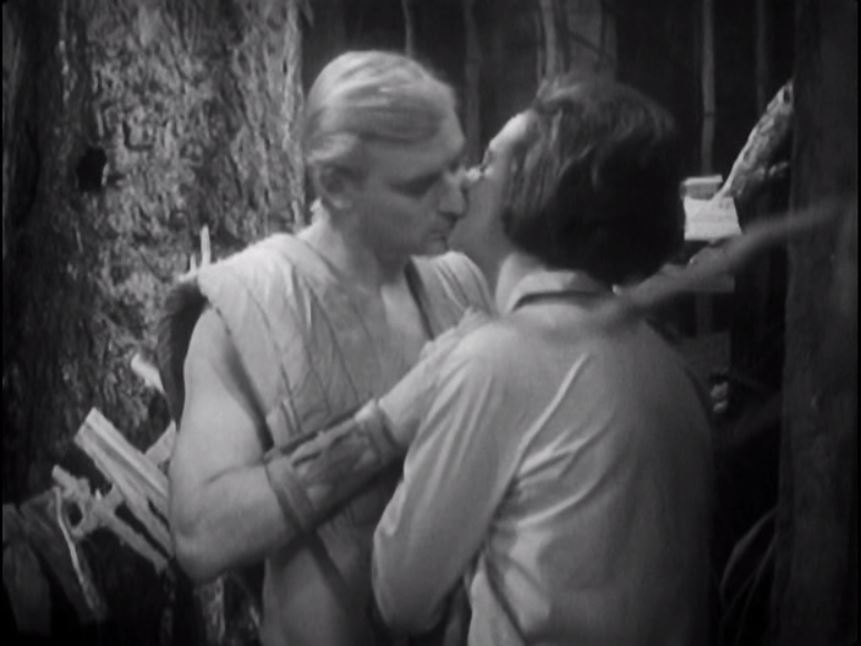
FINAL THOUGHTS
Right, so when it comes down to it, what did I think of The Daleks?
We’re just two serials in, and The Doctor is already affecting events on a planetary scale! If he carries on the way he does, there'll be a Doctor-shaped trail of destruction across the universe before long.
The serial did start to meander a little bit in the middle with having to go back to the city. Particularly The Ordeal, which does set up the finale, but not much else. It's a tricky thing because I can't just point at a scene and say 'cut that'. It would require a surgeon’s finesse.
As for the Thals, I admit I did categorise them in my head as 'Alydon' and 'Not Alydon', which should give you an idea as to how invested I was in the Thals who weren't Alydon. I have forgotten all of their names. They're more of an ensemble cast than distinct individuals, so I didn't really blink when any of them died.
I'm a bit unsure about killing off all the Daleks. It seems a shame to get rid of an interesting villain, one so inhuman, for whom morals aren't a consideration when it comes to survival. An interesting foil for the Doctor, wouldn't you agree? Also, though the Daleks we saw were unquestionably evil and sowed the seeds of their own destruction, was that the case for all of them?
Then again, we never see anything to suggest a concept of individualism amongst the Daleks, so it could be argued that they all harboured the same genocidal ambitions, making peaceful coexistence with the Thals an impossibility. Still, there's no way of knowing either way, which is why I'd have liked to have seen some consideration of their fate.
I wonder if, as the Thals have basically bred into themselves the instinct for pacifism, the Daleks bred themselves to be the opposite. It would fit with all of their actions. When faced with a fight or flight situation, the Thals would always choose flight, and the Daleks would fight. I wonder how the Daleks kept on as long as they did without wiping themselves out. They think nothing of experimenting on or even killing their own kind, if it would further the ends of their leaders.
We do get one line from the Thals that could be interpreted as regretful, though that was probably more for the Thal losses than for the eradication of all Daleks. For that matter, for a bunch of people who had a complete taboo against violence, they did seem to take to it quite well in the end. You'd think the Thals might actually mourn the Daleks. That would have been quite curious to see from our perspective, but I think it would have made sense for a people who up to recently had been so dedicated to living in peace and harmony. Hopefully they won't end up regaining their ancient taste for war.
Still, a very exciting and enjoyable serial all the same. I know it's less educational, but then again, it did explore some moral philosophy on when it's right to fight, if ever, and I love that sort of thing. I also think it came to a responsible conclusion: avoid fighting, except in the defence of yourself or others. I can get behind that. The only time I ever got in a scrap as a child was when a boy was picking on my little brother. I didn't do much for fear of really hurting the bully, but he did back off. I would like to see a bit more that's less cut and dried, perhaps with factions that can’t be simply described as ‘good’ or ‘evil’. Because the real world is messy like that, and I do think that in itself is an important thing to teach.
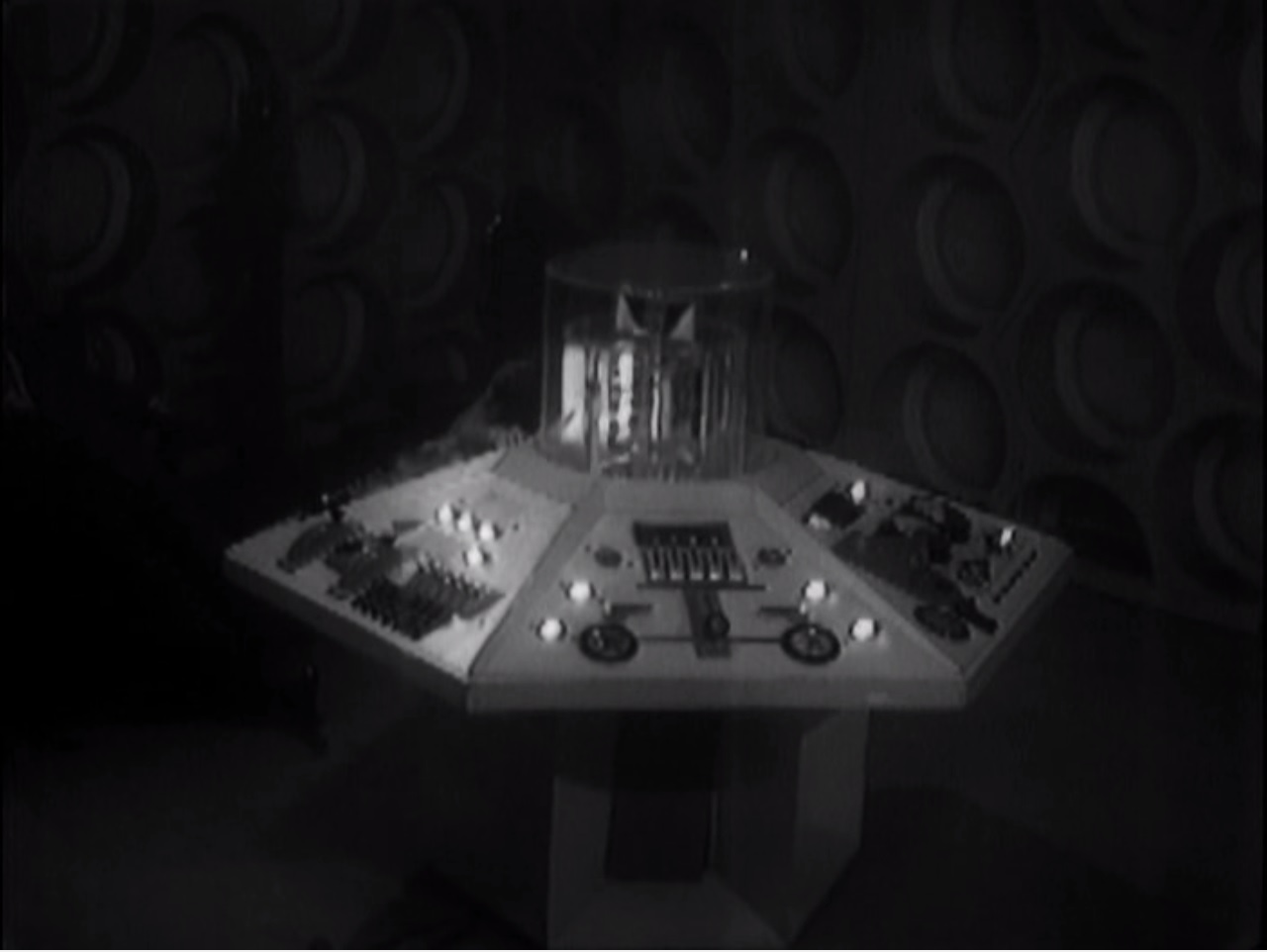
I’ll be back very shortly for our next outing. Our companions made it safely back to the TARDIS, but it seems the TARDIS might not be the safest place to be after all…
4 out of 5 stars

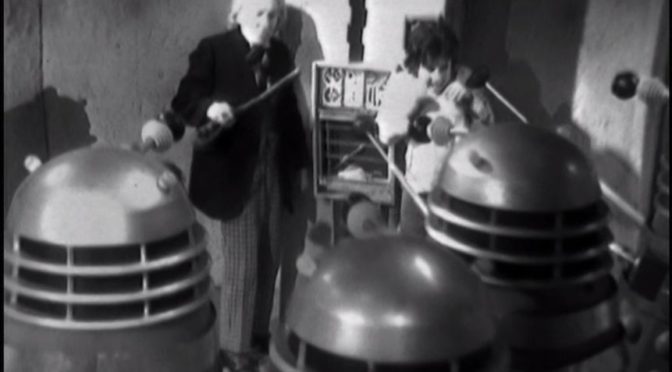

The thing is though the daleks always find a way to come back
You may well be right! (or you work for the BBC…)